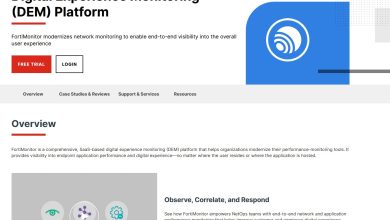
When it comes to operating a business, there’s a reason you might think of it as a machine. A machine can break down if any of the components are not working properly. Shoddy maintenance can result in lowered efficiency and output. And most machines come with an operating manual in order to keep them running smoothly.
Similarly, your company should have written documentation of approved operations and best practices to help ensure optimal functioning. By having an operational playbook in place, you are setting yourself up for a more streamlined process. Not only that, but your employees will appreciate knowing expectations and being able to research procedures themselves.
-
An Operational Playbook Keeps Your Processes Consistent and Efficient
Without written documentation keeping standard operating procedure (SOP) rules consistent, employees are forced to make up their own guidelines. This can apply to a multitude of areas, including expected quality of work, documentation requirements, and payroll requests. Sure, there can be verbal expectations passed around the office, but verbal instructions lack the concrete reference qualities of text.
For example, an SOP manual should include a section regarding workflow tracking and documentation. If projects pass from person to person without notes regarding who touched them and when, it can be extremely problematic. What if projects are tracked in various ways by different people? While it’s certainly better than no tracking at all, it can be a time-sucking, inefficient practice.
Maybe one employee maintains hard-copy notes, one makes sure to save related emails, and another creates a spreadsheet. Technically, the project is being tracked, but finding the answer to a question could take ages. By having an established tracking procedure in place, everyone knows what information to record and where to put it. This can be especially useful for supervisors who need to quickly check in on multiple projects.
Having universal instructions also inspires a greater sense of stability for employees. Being told, “Well, we all do it our own way, so do whatever works for you” doesn’t exactly inspire confidence. Employees, and especially new hires, want clear guidance so they know they’re being set up for success. Also, it can prevent internal conflict stemming from different employees being held to different standards or following different rules.
-
It Decreases Training and Turnover Expense
By now it is fairly well known that employee turnover can be expensive. Estimates of total costs vary but range between one-third and 150% of the departing employee’s annual salary, depending on the industry. One major component of turnover expense is the productivity loss that occurs during new employee onboarding and training.
By having a detailed SOP in place, new employees can be less dependent on their co-workers and supervisors. Human resources is an area where substantial time savings can be achieved. Having one centralized document detailing how to request PTO, complete onboarding, and get answers to other FAQs can cut down on internal queries. It’s even appreciated by veteran employees, who might want to reference procedures and benefits from time to time.
Providing instructions on the various software your company uses is another way to decrease training time. Having a reliable source of useful information minimizes the need for another employee to provide training. And as your playbook will specifically address usage within your business, new hires won’t waste time with general online tutorials. Instructions can include best practices, security requirements, and troubleshooting info.
-
It Sets the Foundation for Accountability
Employees generally want to know what is expected of them and how to go about meeting those expectations. By the same token, employers don’t want employees pleading ignorance as an excuse for poor work quality. An operational playbook can satisfy both parties.
With an operational playbook in place, employees can reference procedures in a quick, easily accessible way. It also provides the added bonus of protecting workers from inconsistent instructions from colleagues and supervisors. If an employee is told they have incorrectly followed a procedure, they can point to the playbook proving otherwise.
Employers also benefit greatly from having universal procedures and expectations. Willfully or not, employees are more likely to eschew correct methods if they’re not written down. Any omissions can be chalked up to ignorance. This excuse is no longer an option when the operational playbook is available to everyone and can be referenced easily.
-
It Can Raise the Value of Your Company
It is important to remember your business is not only a tool for profit; it is also a potential commodity. Maybe you’re already intending to sell your company or just want to be ready if someone unexpectedly makes an offer. The bottom line is that an established, profitable, and organized business is an attractive business.
A particular buzzword that might be brought up when addressing the value of a business for sale is “turnkey.” A turnkey business is one in which the purchaser can theoretically come onboard and take over operations seamlessly. Since this eliminates a massive amount of start-up and transitional nightmares, it can make your business appealing to buyers. Without an extensive operational playbook detailing the exact procedures that make your business a success, the transition might prove difficult.
You can test whether or not your operational playbook is robust enough to raise the value of your business. One way is to view it through the eyes of an incoming investor with no prior knowledge of the company. This is somewhat challenging, as it is nearly impossible to ignore the knowledge you possess. Another way is to request feedback from new hires in supervisory roles for a select period of time. The responses can let you know where your playbook excels and where additional information is needed.
-
It Can Be Updated As Required
Just as there are always advancements in machinery, there will surely be changes and advancements in your business. With that evolution comes the need to adapt procedures accordingly. Change can take the form of updated software, corporate restructuring, or growth. If you adjust your procedures and fail to bring your playbook up-to-date, it loses its power as the ultimate source of guidance.
One way to look at it is by comparing an outdated playbook to an outdated company website. If your website is not kept current, it gives a very bad impression to your customer base. Obvious errors like not updating personnel profiles or even basic contact information will be noticed. An outdated playbook can also give a similarly negative impression, but in this case, the audience is internal. Employees notice if you care how processes and procedures are maintained, and SOP guidelines are a major indicator of that.
Updating your operational playbook should be on your annual to-do list. This is every bit as important as yearly employee reviews and insurance updates. And with more and more businesses moving to online digital documents, keeping your playbook current is easier than ever. There’s no longer any need to send updated documents off to the printer. Updates can be made instantly, keeping pace with change in real-time.
Conclusion
Having an operational playbook in place is not only recommended, it’s essential. An operational playbook both provides protection for all parties in the business and streamlines processes. And when processes are streamlined, you can efficiently increase output in the work that makes your company thrive.




